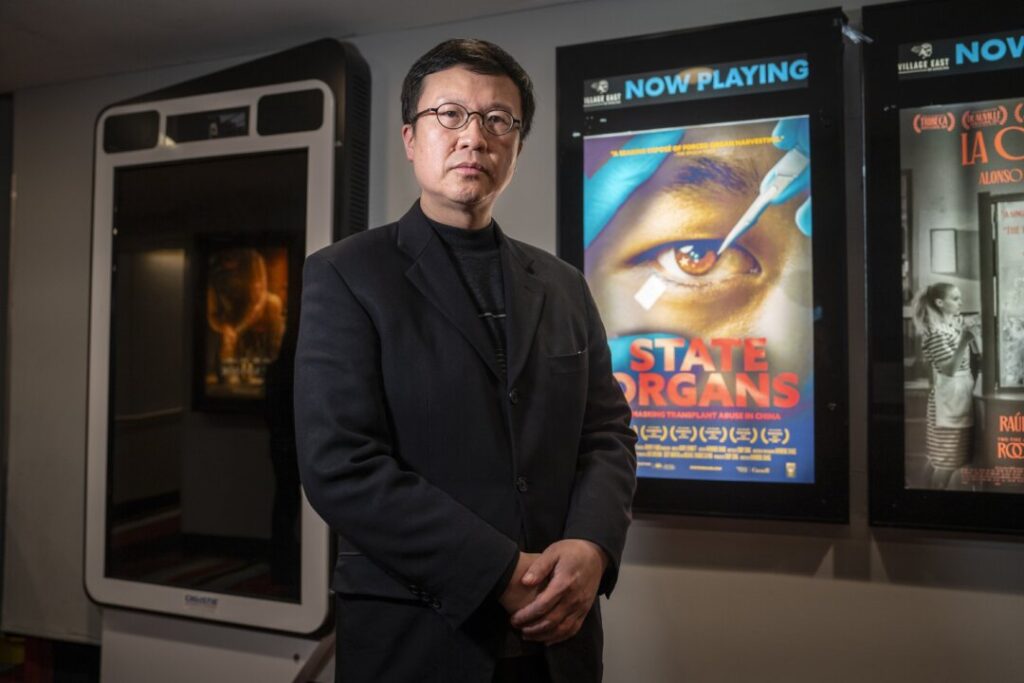The film festival organizers said, “When we called, they told us, ‘We don’t support festivals of political nature.’
The sudden decision came from Megabox Dongdaemun, Sliff’s official screening venue, one day before the festival opened on May 30th. Organizers say they were shocked, and filmmakers say they were furious.
“This is the first time I’ve seen something like this happen in Korea,” said Heo Eun-Doh, general director and chief curator at Sliff. “Theatres are unilaterally cancelling international human rights films. There’s no doubt this was due to external pressure.”
Megabox is one of Korea’s largest theater chains, with over 100 locations nationwide. According to Sliff’s organizers, they provided all the material to the Dongdaemun branch, signed the contract and paid the full rental fee upon approval, which was engraved by Megabox headquarters.
Heo told the Epoch Times that his team was monitoring ticket sales and discovered that everything suddenly disappeared.
“When we called, they told us, ‘We don’t support festivals of political nature,'” he said.
According to the film’s summary, “The State Organ,” a 76-minute documentary produced by Peabody Award-winning Raymond Chang, reveals evidence of state-sanctioned forced organ collection following a dangerous search of two families of missing China.
Chang rebutted political allegations by Megabox Theatre.
“This is not a political film. It deals with universal values such as humanity and human rights,” he said.
“I think the sudden cancellation in South Korea was driven by interference from the Communist Party of China (CCP). When the film was screened in Taiwan, I received over 100 threatening emails and messages, and was targeted by a Pro-CCP cyberattack.
Despite the set-up, Chang emphasized his belief in Korean society.
“I still believe that South Korea is a free and democratic country and its citizens are not subject to this kind of pressure,” he said.
“An violation of artistic and expressive freedom”
According to HEO, Sliff is the only film festival in Korea dedicated to global human rights issues. He said he and his team spent a year preparing for the film festival, describing the last-minute cancellation as a catastrophic blow to the festival and a serious violation of free expression, resulting in external political pressure.
“This was not an internal decision. It was a forced closure. It was strongly influenced by the influence of external forces. It is a serious violation of artistic and expressive freedom,” Heo says.
He said what is happening in Korea is similar to what happened in Hong Kong in 2019, as depicted in “Revolution of Our Times.” He said the documentary on the Hong Kong democratic movement serves as an example of why these films are important.
“No one has the right to remove artistic or expressive freedom, and I believe the Korean masses understand it. Think about it. Are you unilaterally labeling international human rights films as “political” and pulling them while tickets are still on sale? There’s no way this comes from Koreans,” he said.
Ho vowed to continue fighting.
“We will not be silent. We will not step back. We will endure firmly. I believe justice will win after all,” he said.
“When we are silent in the face of this kind of censorship, we are not just giving up on art. We are giving up on democracy itself. This cannot be put aside. We are making sure the truth is known throughout Korea and calling for us to stand with us. That is our unwavering position.”
Film festival organizers were able to select one list of “State Organs” at KBS Hall in Seoul on May 30th.
The Epoch Times reached out to the Megabox Dongda Emun branch, but the phone could not be answered.
Jing contributed to this report.



